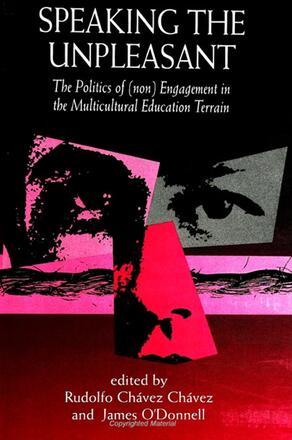
Speaking the Unpleasant
The Politics of (non)Engagement in the Multicultural Education Terrain
Alternative formats available from:
Description
Discusses the issue of engagement, and nonengagement, of students in multicultural education programs.
At New Mexico State University Rudolfo Chavez Chavez is Professor of Curriculum and Instruction and James O'Donnell is Assistant Professor of Curriculum and Instruction. Chavez Chavez has also written Multicultural Education in the Everyday: A Renaissance for the Recommitted, and coedited The Leaning Ivory Tower: Latino Professors in American Universities (also published by SUNY Press) and Ethnolinguistic Issues in Education. O'Donnell has coedited Learning and Unlearning Racism: Multicultural Education Revisited.
Reviews
"This volume creates a multicultural education dialog by and for teachers. The chapters address personal and institutional reflections that continuously probe into pre-and inservice students' tacit knowledge and mystified historicity that ideologically shape their understandings of culture, ethnicity, race, class, gender and sexual orientation, as well as other socially constructed and hegemonically ridden realities like oppression and the 'isms. '" -- From the Introduction by Rudolfo Chavez Chavez and James O'Donnell
"As a teacher and a scholar, I found Speaking the Unpleasant to be highly engaging because it addresses tensions, frustrations, and bursts of success that are all inherent in my own work. Readers will find this volume extremely helpful for its naming of the problem of (non)engagement, its discussions of how (non)engagement manifests itself in various educational contexts and why, and the varied strategies colleagues use to attempt to engage students, preservice teachers, and inservice teachers with social issues. " -- From the Preface by Christine E. Sleeter
"Speaking the Unpleasant courageously addresses an issue that is absolutely central to the struggle for a critical multiculturalism, yet one that has been largely ignored by critical educators. The reason why so many students and teachers refuse to acknowledge and resist relations of exploitation should be of fundamental concern to all criticalists in the field of education. The editors of the volume have greatly advanced our understanding of this issue and as a result have advanced the cause of critical multiculturalism in new and important ways. This is a volume that needs to be read. " -- Peter L. McLaren, University of California, Los Angeles